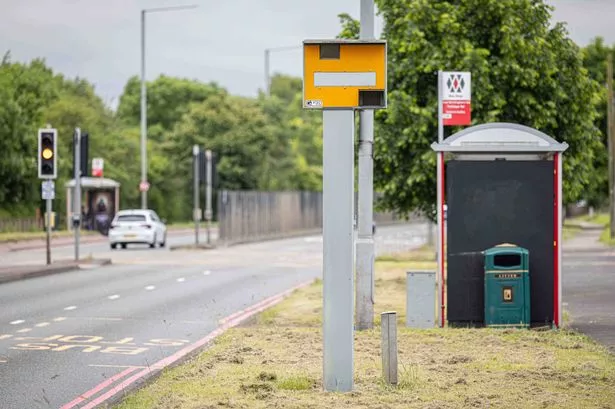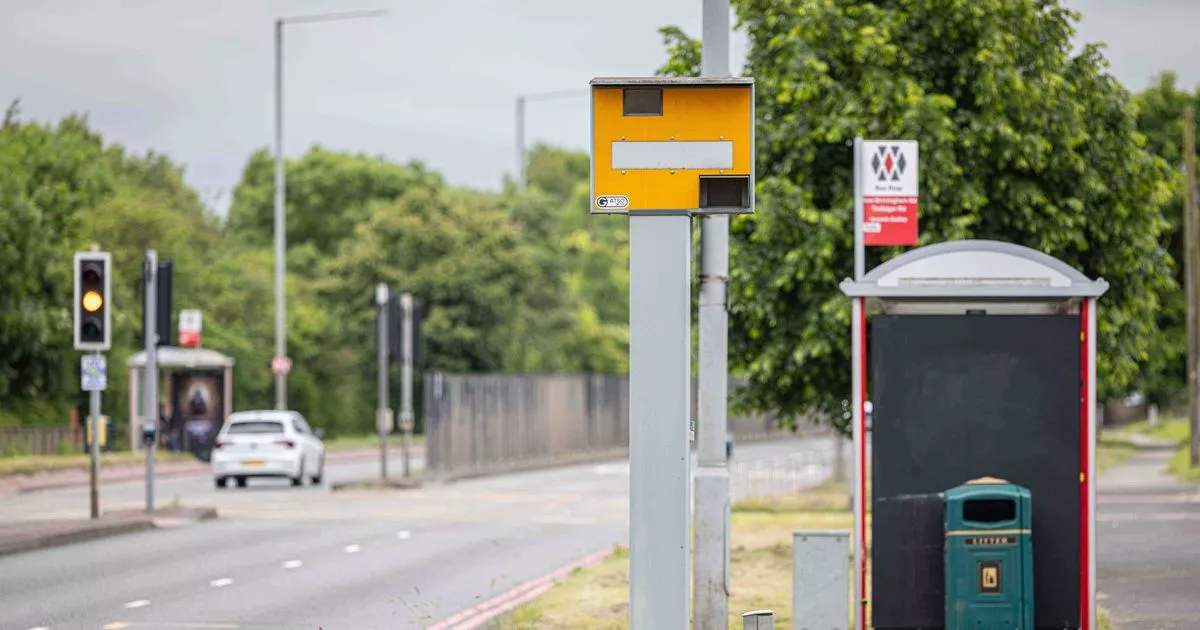Average speed enforcement is a key action of the region’s Road Safety Plan The A4123 New Birmingham Road in Tividale near Dudley
The A4123 New Birmingham Road in Tividale near Dudley
Measures to stop dangerous drivers killing or seriously injuring people on West Midlands roads are ‘not a revenue raiser’, councillors have been told.
Members of the West Midlands Combined Authority’s (WMCA) Transport Delivery Overview and Scrutiny committee were given an update on progress of the average speed enforcement initiatives in the region.
And they were told the number of collisions had reduced by more than 30 per cent on some of the locations were speed cameras were located.
READ MORE: Plea over railway stations for Blues’ Sports Quarter to avoid Wembley-style problems
Darren Divall, Regional Road Safety Manager, added there had been an increase in the number of drivers being handed fines, offered to go on retraining course or prosecution.
But committee member Councillor Leslie Kaye said calls to retain money from fines in the West Midlands instead of being sent to Government could result in people seeing the speed cameras as a revenue generator rather than being about road safety.
Mr Divall said running the scheme results in an annual £1.8 million deficit and retaining the cash would help it break even.
During the meeting, Mr Divall said the number of people killed or seriously injured had risen from 1,048 between 2015-17 to 1,138 in 2022-24.
This has seen the calculated societal cost – which the costs to the NHS and emergency services – rise to £444 million to £320 million.
In 2021-23, there was a 13 per cent rate of activations (fines, offers to attend retraining and prosecutions) but that figure has now risen to 54 per cent.
In November, WMCA Board endorsed the Regional Road Safety Action Plan 2024-2030 with the first action being working towards a new multi-year Operational Agreement for Average Speed Enforcement.
An independent study of 27 average speed enforcement camera locations showed the number of personal injury collisions had reduced by 35.2 per cent compared with a zero per cent cut at locations where no enforcement was present.
Should Brummies get a bin strike council tax refund?
Councillor Kaye said: “I have reservations about requesting we should receive the proceeds from road fines from Government as compared with receiving a round-sum grant from Government.
“There’s two reasons, first of all the general public may with some justification start wondering whether the siting of speed cameras is for the purposes of raising revenue rather than road safety.
“And the second reason is as drivers become educated as to where the cameras are, then revenues will fall. In future years, there will be less money available for road safety projects than there would be were we to receive a round sum grant from Government.”
Mr Divall said: “The Government have been written to five times so far and there are some pros in receiving and retaining the fine money.
“But this isn’t about punishing drivers and we don’t want the public to think it is a money making scheme because you can see from the figures already this is making a £1.8 million loss every year.
“The retention of the speeding fines is really to help break even on a scheme, which is our most successful road safety intervention.”
Councillor Liz Clements added: “In Birmingham, we have declared a road safety emergency.
“We’ve got preventable deaths and serious injuries happening almost every day and destroying the lives of families all over our city.
“We need to take action on them and this is the most powerful tool we’ve got.
“The scheme is running in deficit and obviously represents a revenue pressure for local authorities essentially.
“That’s why we need fines retention in this region. We need this to be a financially sustainable scheme for the long term.
“As local councillors, one of the most frequent requests we get from our constituencies is for more cameras and more action on speeding.”
And committee chair Councillor Tim Huxtable said: “If everyone stuck to the speed limit, there would be no fines full stop.”
